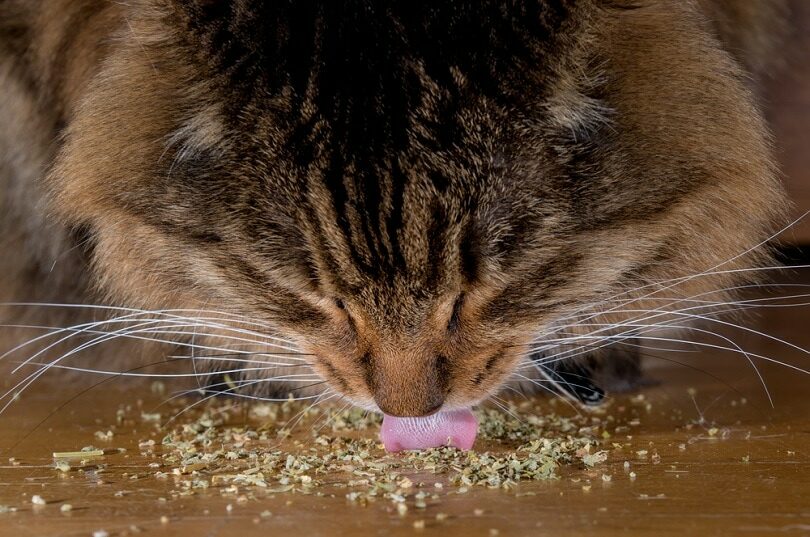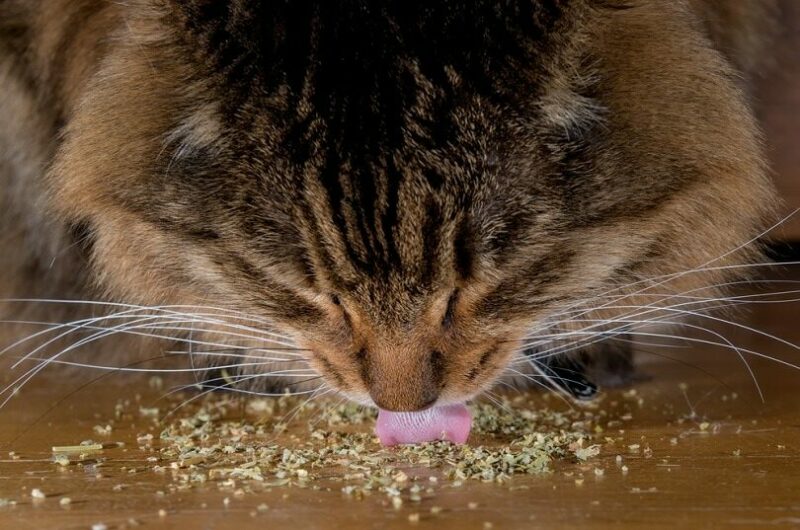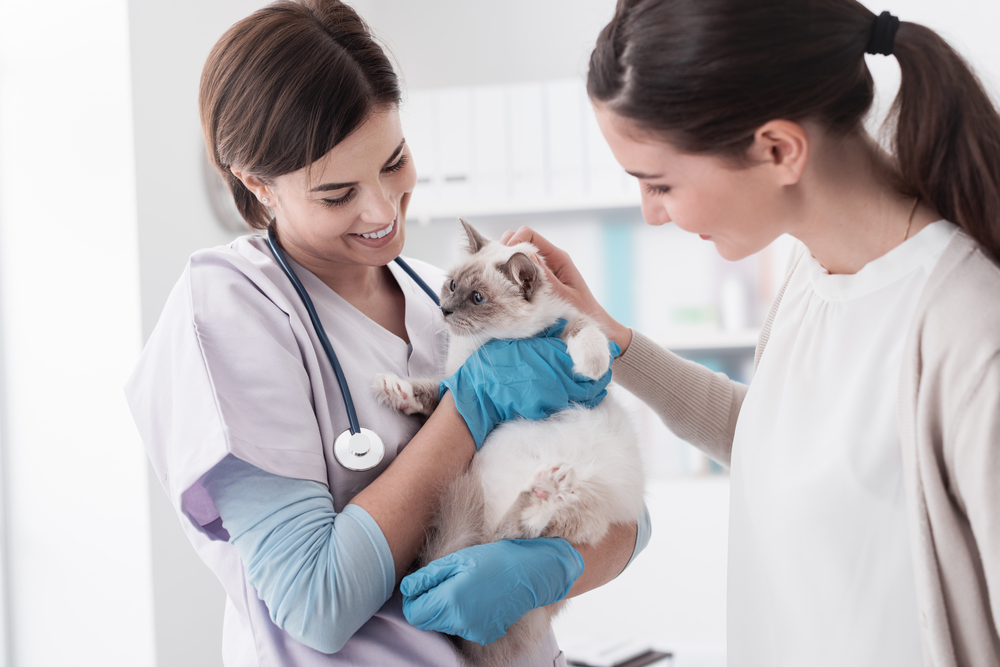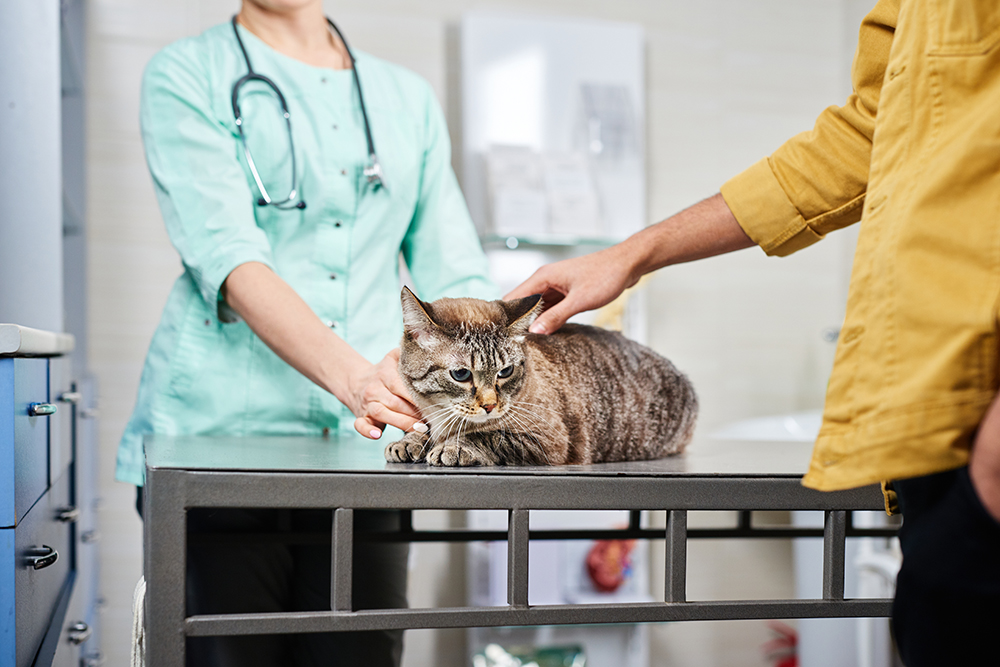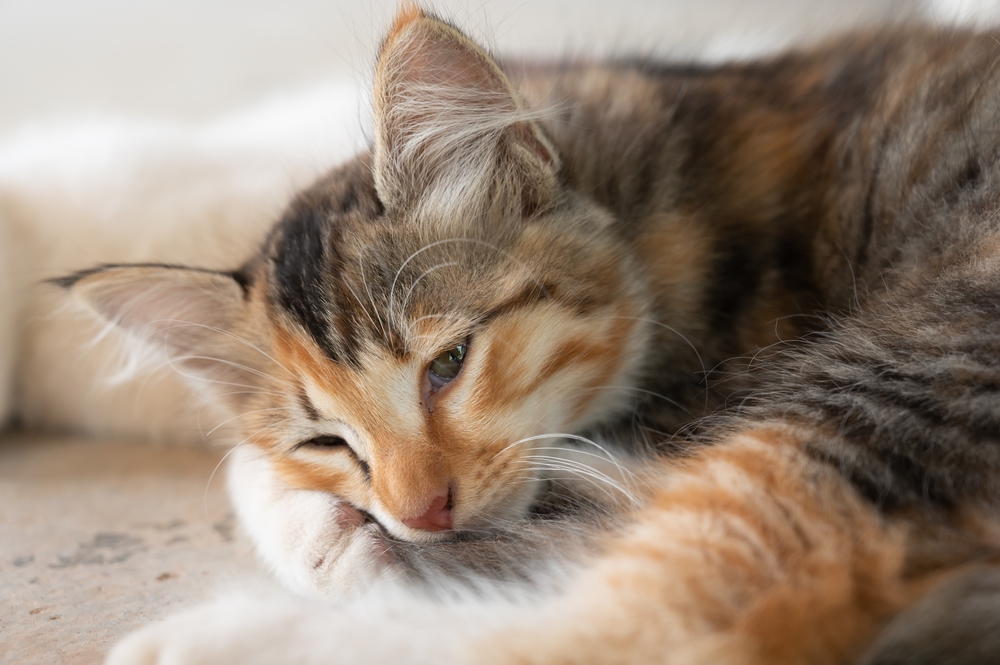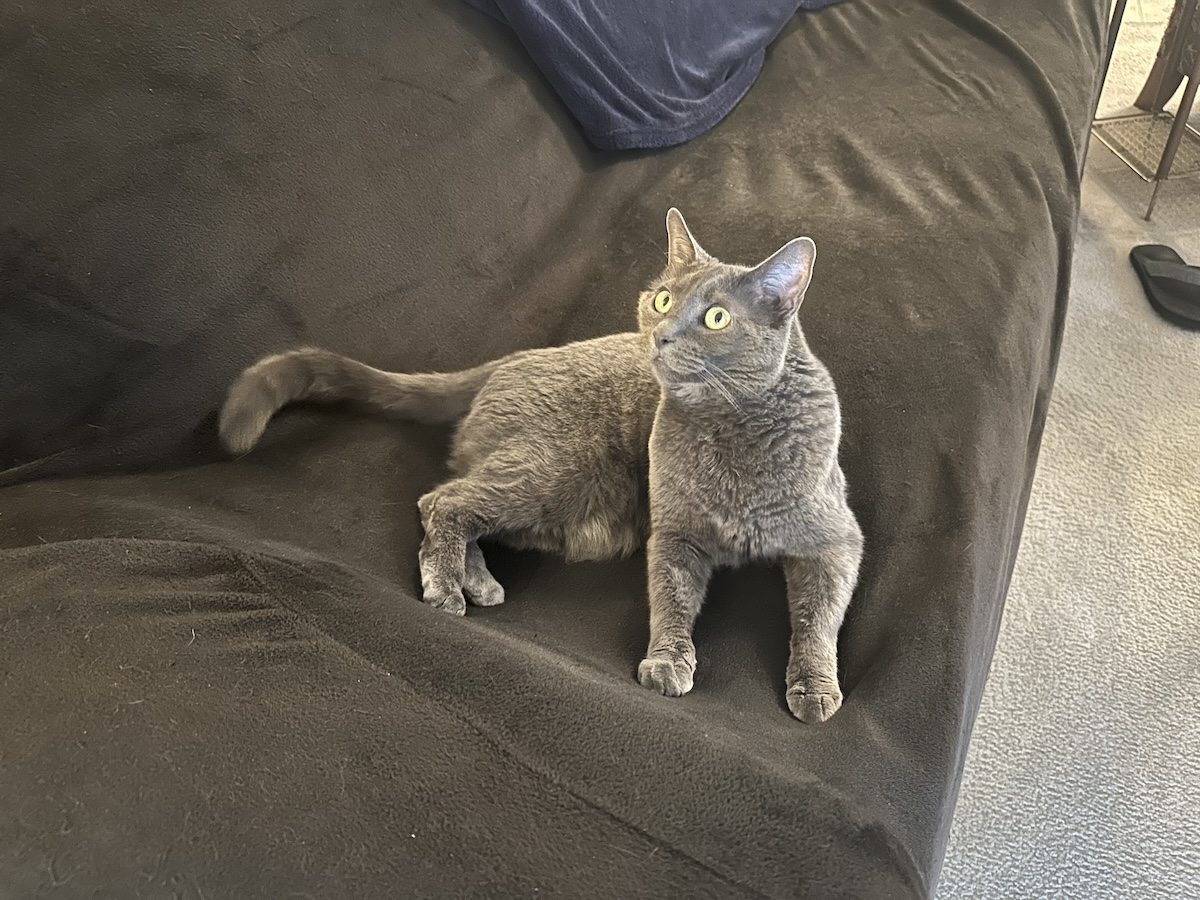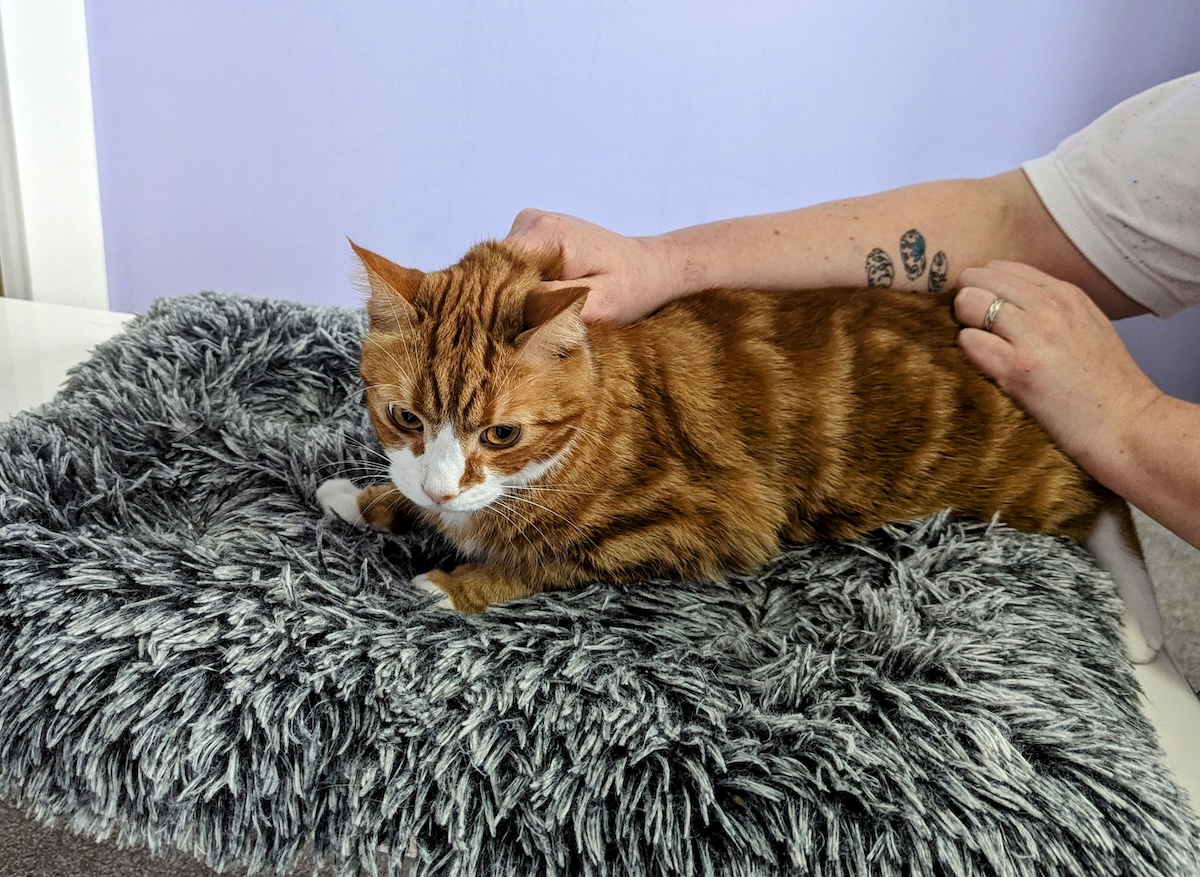Click to Skip Ahead
Catnip is an herb related to mint that originated in Asia and Europe. It has green or gray-green leaves, light green stems, and tiny lavender flowers. It’s technically called Nepeta cataria and has long been used in cooking and for medicinal purposes.
It can be used to make tea, and some suggest it has health benefits for humans, such as lowering anxiety and improving digestion. But does catnip provide cats with the same benefits? Is the herb good for feline digestion?
Cats can eat catnip, which may benefit their digestive tracts. However, cats who consume too much catnip can experience problems such as an upset stomach and more, so limiting the amount of catnip kitties enjoy is best.
Your veterinarian can provide appropriate guidance regarding whether catnip is okay for your cat to consume as a digestive aid.

Nutrition Facts
Catnip isn’t a great nutritional choice for cats, as it doesn’t contain the nutrients they need to thrive. Most of a cat’s diet should be animal protein, which isn’t found in plants like catnip. Catnip is packed with antioxidants, including flavonoids and phenolic acids, but there are far better ways for cats to get all the nutrients they need.
Healthy cats who eat high-quality commercial foods with Association of American Feed Control Officials statements of nutritional adequacy get all the vitamins and minerals they require from their regular food and generally don’t need to have supplements added to their diets to ensure they’re getting all the right nutrients.
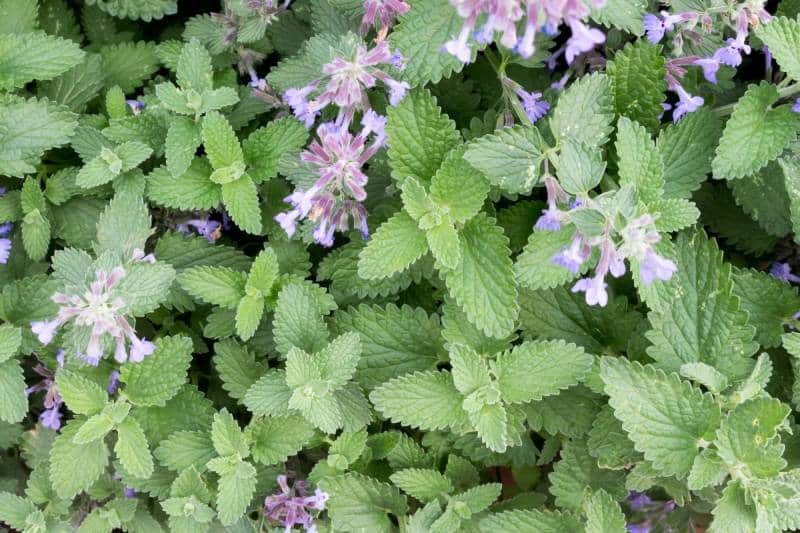
What Other Benefits Does Catnip Have?
Catnip is a fantastic way to get cats moving, which is critical for their physical well-being. It can motivate cats who aren’t interested in getting active to enjoy physical activity.
Some cats experience stress and anxiety relief from sniffing catnip. It may also help cats with separation anxiety deal with being left alone.
How Does Catnip Impact Cats?
Some cats become energetic and playful, but catnip can also cause them to calm down and relax. Depending on how they respond to it, catnip can be a great way to encourage cats who prefer lounging comfortably on couches to exercise. However, catnip doesn’t have an effect on all cats.
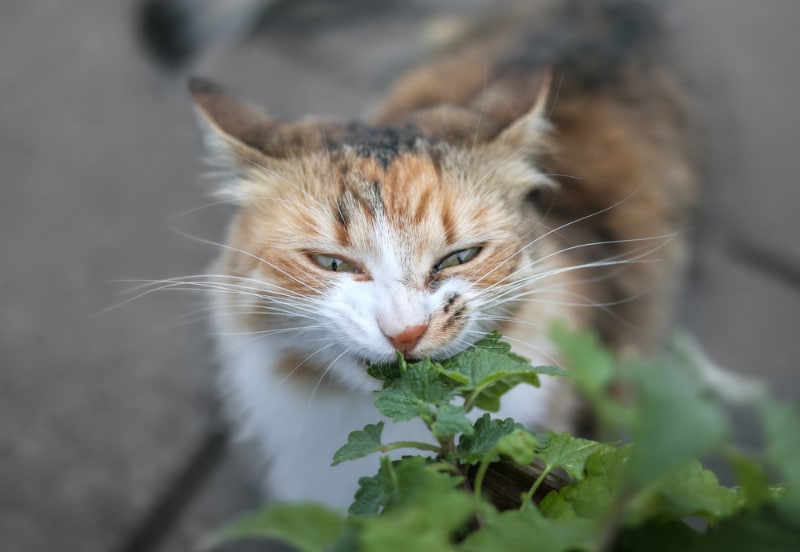
How Is Catnip Most Commonly Used?
There are various ways for cats to enjoy catnip. They can sniff or chew on fresh catnip or dried catnip. Dried catnip is perfect for stuffing in plush toys to add extra fun to playtime. It’s also available in sprays and can be added to scratching posts and cat beds.
Do All Cats Enjoy Catnip?
Not all cats are sensitive to catnip’s effects. Kittens cannot enjoy catnip until they’re between 6 and 12 months old. Those who don’t respond to catnip can try silvervine, which affects cats like catnip.
Silvervine works for around 80% of cats, and silvervine sticks can also help keep tartar from building up on their teeth. Cats should always be supervised when enjoying silvervine sticks to ensure they don’t choke on small broken-off bits.
Lots of cats go bananas for catnip. If your cat is one of them, we recommend Hepper's durable, engaging Catnip Stick Toy! These sturdy toys come in several fun colors and feature bite-proof double bagging and 100% organic catnip fill. They're also handmade in the USA and designed to look like your cat's natural prey.
At Catster, we’ve admired Hepper for many years and decided to take a controlling ownership interest so that we could benefit from the outstanding designs of this cool cat company!

Frequent Asked Questions
Can Catnip Cause Kitties to Overdose?
No. However, cats who overindulge can have tummy trouble and difficulty standing straight (until the effects wear off). Catnip usually gets cats high for about 10 minutes, and it takes about 30 minutes until the effects have worn off enough for another hit to be effective.
Ultimately, the plant doesn’t cause them to become addicted or experience withdrawal signs.
Are There Other Ways to Maintain Healthy Digestion?
Ensuring cats eat high-quality diets, get enough physical activity, and stay properly hydrated are all important for their digestive health. Commercial foods are also specifically formulated to support cats with digestion problems.
Make sure to discuss any dietary changes with your veterinarian to ensure they provide the nutrients your cat needs.
Feeding your cat a high-quality diet is important for keeping them healthy and happy. But it goes beyond the food you choose; the dishes they use also matter. The Hepper NomNom Cat Bowl is our favorite for its unique, five-star design that protects from whisker fatigue and promotes good posture which also aids in better digestion. As an added bonus, it’s beautifully crafted and offers a modern take on the traditional cat bowl that fits seamlessly with all home stylings. Learn more about the NomNom by clicking here. At Catster, we’ve admired Hepper for many years and decided to take a controlling ownership interest so that we could benefit from the outstanding designs of this cool cat company!
What About Probiotics?
Probiotics may provide benefits such as immune and digestive system support. Some are included in commercial cat food formulations, and probiotic supplements for cats are also available.
Your veterinarian can determine if your cat needs probiotics in their diet and help you develop a healthy diet plan.
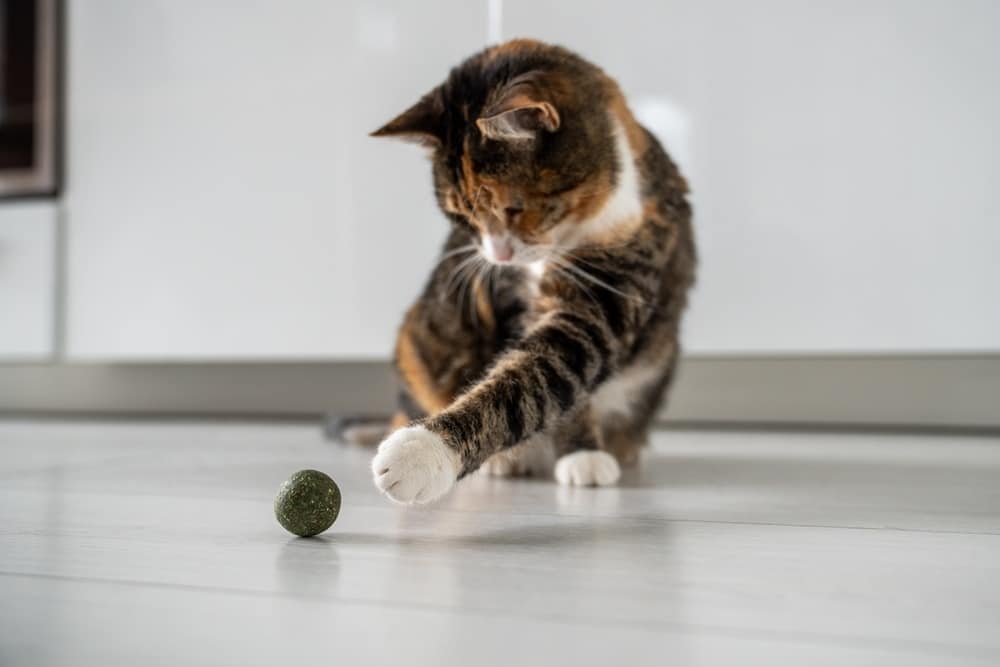

Conclusion
Catnip is an herb that’s part of the mint family. Sniffing the plant energizes most cats and encourages them to play. However, it can also cause some to mellow out and relax.
Catnip may benefit cats’ digestive health, but keep in mind that it can cause upset stomachs and coordination problems in cats who consume too much. Veterinary guidance should be sought before giving cats catnip as a digestive aid to ensure it’s the right choice to support their overall health and well-being.
Featured Image credit: Doug McLean, Shutterstock

